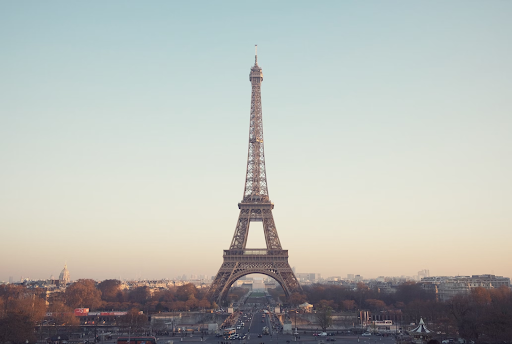
European Football Championship 1960
After the Second World War, which deeply shook Europe, football was one of the ways to overcome the severe consequences of the war events. The sport, already popular before the war, was now being reorganized, and what had been discussed for many years was the organization of a tournament involving European national teams. Interestingly, Europe was the last continent to do this. The first European Championship was realized by France, which hosted this historical event from July 6 to July 10, 1960, initially called the European Nations Cup.

Photo: unsplash.com.
Qualifications
Seventeen European teams participated in the qualifications for this competition. Czechoslovakia won against the Republic of Ireland in the preliminary round, thus advancing to the round of 16 with Soviet Union, Hungary, France, Greece, Romania, Turkey, Norway, Austria, Bulgaria, East Germany, Portugal, Poland, Spain, Denmark, and Yugoslavia. In the round of 16, two matches were played, where the Soviet Union defeated Hungary, France overcame Greece, Romania beat Turkey, Austria defeated Norway, Portugal won against East Germany, Spain was better than Poland, Czechoslovakia overcame Denmark, and Yugoslavia won against Bulgaria after two matches.
In the quarterfinal matches played during 1959 and 1960, France beat Austria 9:4, Czechoslovakia defeated Romania 5:0, and Yugoslavia overcame Portugal 6:3. The Soviet Union advanced to the European Championship without a fight as Spain refused to travel for the match.
Host Country
France hosted the teams in two cities – Paris and Marseille. The matches were played at the “Parc des Princes” and “Velodrome” stadiums, each hosting two matches.
Participating Teams
Four teams participated in this Championship: host France, Czechoslovakia, the Soviet Union, and Yugoslavia. Interestingly, the Yugoslavian team was led by coaches Aleksandar Tirnanić and Ljubomir Lovrić in France. The squad included, among others, Milutin Šoškić, Vladimir Durković, Fahrudin Jusufi, Tomislav Crnković, Dušan Maravić, Dragoslav Šekularac, Branko Zebec, Bora Kostić, Milan Galić, Vladica Kovačević, and Todor Veselinović.
Knockout Phase
In the semifinal matches, the teams of France, Yugoslavia, Czechoslovakia, and the Soviet Union met. The host team welcomed Yugoslavia at the “Parc des Princes” in Paris in front of more than 25,000 people on July 6, with Yugoslavia taking the lead in this match. Galić scored in the 11th minute. However, only a minute later, Vincent equalized. Hete gave France the lead in the 43rd minute, and Visnevski increased the lead in the 53rd minute. At that moment, it seemed France was closer to the final victory. However, in the 55th minute, Žanetić reduced the score to 3:2, but Hete scored again in the 62nd minute, giving his team a two-goal lead. Indeed, no one in the stadium thought France would fail to reach the final of this historic competition. Yet, the Yugoslav players thought differently, creating one of the greatest comebacks in the history of European championships. Three goals were scored in four minutes for a complete turnaround. First, Knez reduced the lead to 4:3 in the 75th minute, followed by Jerković’s goals in the 78th and 79th minutes, giving Yugoslavia a 5:4 lead. This score remained until the end of the match, and Yugoslavia advanced to the final.
In the other semifinal, the teams of Czechoslovakia and the Soviet Union met at the “Velodrome” in front of 25,000 people. This match had less tension as the Soviet Union won 3:0. Ivanov scored the goals in the 34th and 56th minutes, and Ponedelnik in the 66th minute.
Final and Third Place Match
In the match for third place, Czechoslovakia defeated the host France at the “Velodrome” in Marseille with a score of 2:0. Bubnik scored in the 58th minute and Pavlovič two minutes before the end of the match.
In the final, the team of Yugoslavia met the team of the Soviet Union, and the match was played at the “Parc des Princes” in Paris. Galić put the Yugoslavian team in the lead in the 43rd minute, and with that lead, they went into halftime. However, just four minutes after the start of the second half, the Soviet Union equalized, with Metreveli scoring. No changes in the score occurred by the end of the match, and at 90 minutes, the scoreboard showed 1:1, thus the match went into extra time. There, the Soviet Union scored another goal through Ponedelnik in the 113th minute, thus achieving a great victory with a final score of 2:1.

Paris, host of the first final. Photo: unsplash.com.
Statistics and Records
The team of this European Championship featured the famous Soviet Union goalkeeper, Lev Yashin. Alongside him were Ladislav Novak and Josef Masopust from Czechoslovakia, Vladimir Durković, Milan Galić, Bora Kostić, and Dragoslav Šekularac from Yugoslavia, and from the winning country, alongside Yashin, were Valentin Ivanov, Igor Neto, Slava Metreveli, and Viktor Ponedelnik. As for the top scorers, in France, this title was shared by five players, each of whom scored two goals. These were Valentin Ivanov and Viktor Ponedelnik from the Soviet Union, Dražen Jerković and Milan Galić from Yugoslavia, and the host country’s representative, François Heuté.
Legacy and Impact
It’s important to note that this European Championship went down in history as the first and as competition that laid the foundation for the future of European national team football. In the coming decades, it would become one of the world’s largest football competitions, becoming important to all participating teams due to the prestige of winning the European championship.
Interesting Facts
What is interesting about this first European Championship is that many teams were not interested in playing the qualifiers for this competition. Thus, football fans at the time were deprived of seeing players from West Germany, Italy, the Netherlands, Belgium, Sweden, and Switzerland in the tournament.



